Wagtail Space 2025: A Stellar Journey ⭐️
A recap of our incredible 3-day journey
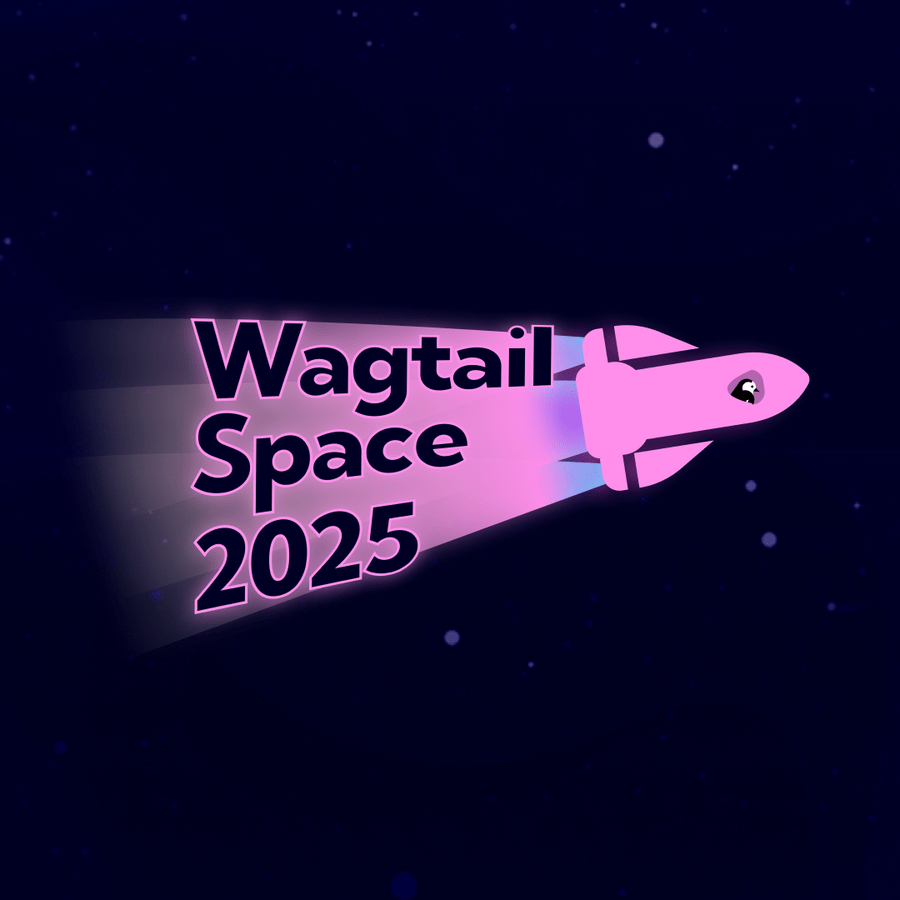
The vibes at Wagtail Space 2025 were brighter than a hypergiant star! 673 people registered to join our spaceflight and 435 people from 65 countries boarded our rocket to enjoy three days of talks, socializing, and online community building.
Day One: The State of Wagtail and inspiring stories
We blasted off with a quick spaceflight briefing and then the traditional State of Wagtail talk presented by Thibaud Colas. Thibaud covered the trends happening in Wagtail right now and the community efforts that the Wagtail core team and contributors are currently working on. Thibaud went over the overall impact of Wagtail, how things are growing, and how we're responding to trends in the wider challenges like AI and sustainability. He explained Wagtail’s 2024 carbon footprint figures, and we took a moment to appreciate how great it is to have both regular online and in-person gatherings, showcasing our lovely meetup at DjangoCon US 2025 in Chicago:
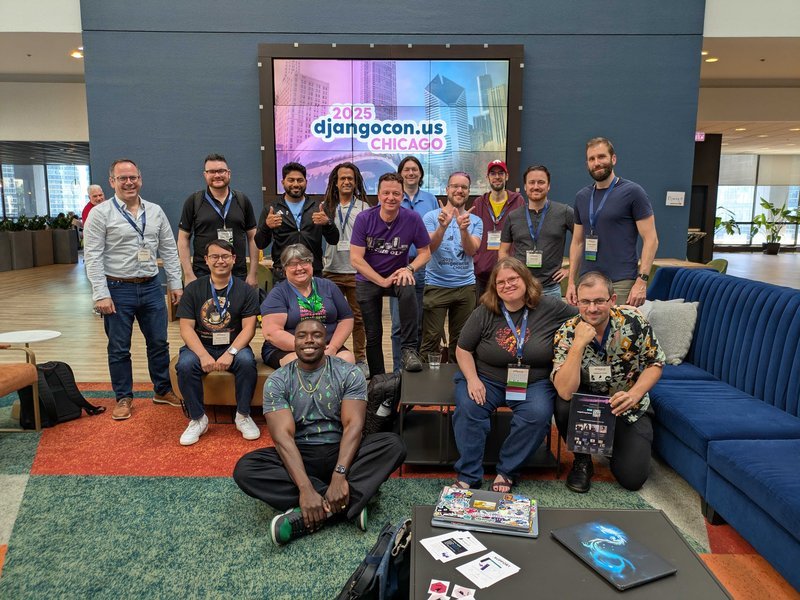
The rest of Day One was packed with talks that had something for everyone. For folks on the business side of Wagtail, we had talks on how Wagtail is used in different industries and how to create better Wagtail experiences for editors. Our events platform makes it very simple to schedule multiple tracks of talks, which means lots of options, but also tough decisions!
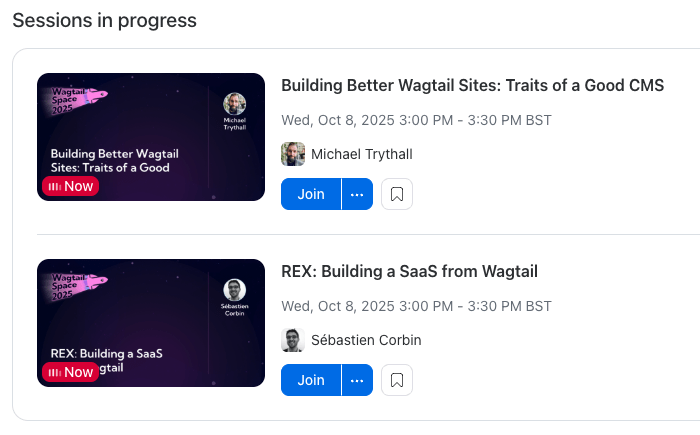
We also heard how the London Museum used AI and Wagtail to help their visitors find more items in their collection that they would be interested in. We also heard from government users at the French DINUM (interministerial digital directorate), who demonstrated how they are using Wagtail to support central government users building sites that align with the government’s design system, DSFR. They used their Wagtail platform, Sites Faciles, to build their presentation slides!
We heard about advanced uses of Wagtail, with integrations for weather data in Africa. Including the CMS being used without any pages:
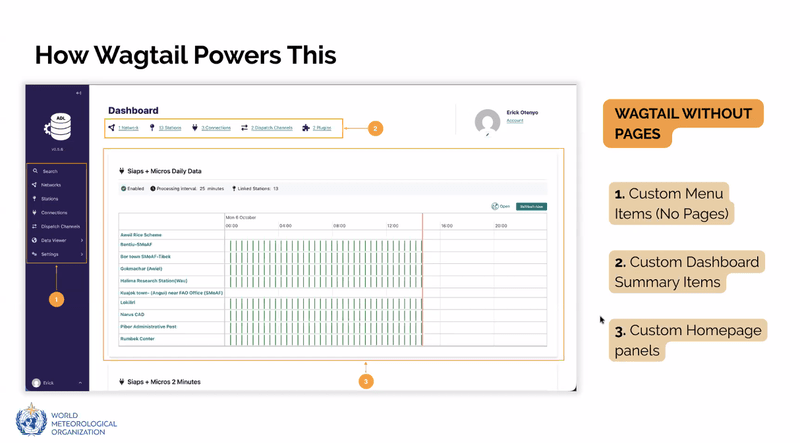
People also learned about the behind-the-scenes of open source, with the Wagtail Nest project presented by our core team member Coen van der Kamp.
We wrapped things up with lightning talks and a social. We heard about how you can use the django-simple-deploy project with Wagtail, the weird origins of the QWERTY keyboard, and a person who is new to open source shared some of the things they learned as a newcomer.
Day Two: AI, case studies, and practical wisdom
We started Day Two with a really early social to give people on the other side of the world a chance to attend a live event. It was great to connect with one of our core team members from Australia and we had great conversations about the different ways everyone uses Wagtail and other open source software. It’s impressive to see how much different organizations will customize the CMS to suit their needs. For example, Sébastien Corbin from RGOODS showcased how they use the preview feature to check different versions of donations widgets:
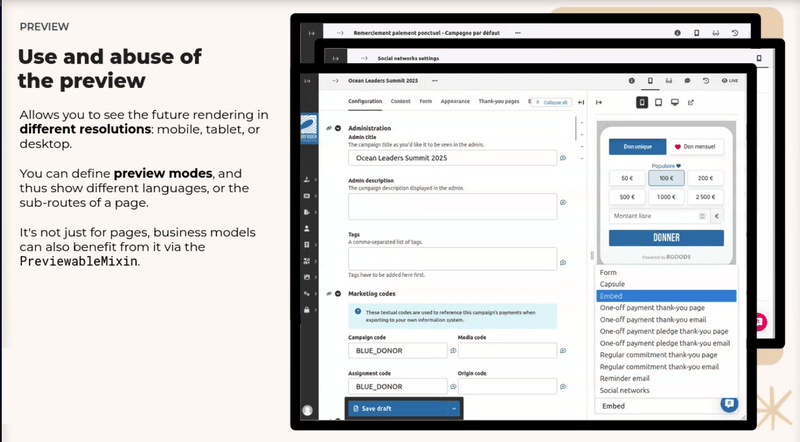
We started out the day with Sage Abdullah and Tom Usher's talk on the future of AI tools in Wagtail, showcasing their latest work on two packages: Wagtail AI, and Django AI Core. We also had two talks on how to incorporate AI agentic coding and other AI tools into Wagtail development. The speakers all provided refreshingly practical and hype-free approaches to AI that were focused on empowering developers, with practical examples - Alex Tomkins showcased two demo projects he had set up for the conference:
- A Flippy screen demo with LLMs and function calling
- A more advanced demo with MCP, summarizing pages off an RSS feed
Day Two also featured great case studies. We learned about the Bogotá Digital Library, a platform to preserve and promote the cultural heritage of Bogotá and we saw how dynamic landing pages can be used effectively to achieve a non-profit's goals. We also learned how switched from the Django admin to Wagtail can help publishing teams create content faster.
Other highlights included a presentation on creating newsletters with Wagtail and Sympa via the wagtail-newsletter package, a talk on creating effective test data for Wagtail and a talk from first-time speaker Chiemezuo Akujobi on his open source journey and how other people can contribute to Wagtail, reflecting on his recent contributions. We also really enjoyed Who's That Code Snippet? A screen reader guessing game. inspired by "Who's That Pokémon?" quizzes. Some were really good at guessing the HTML markup in the chat!
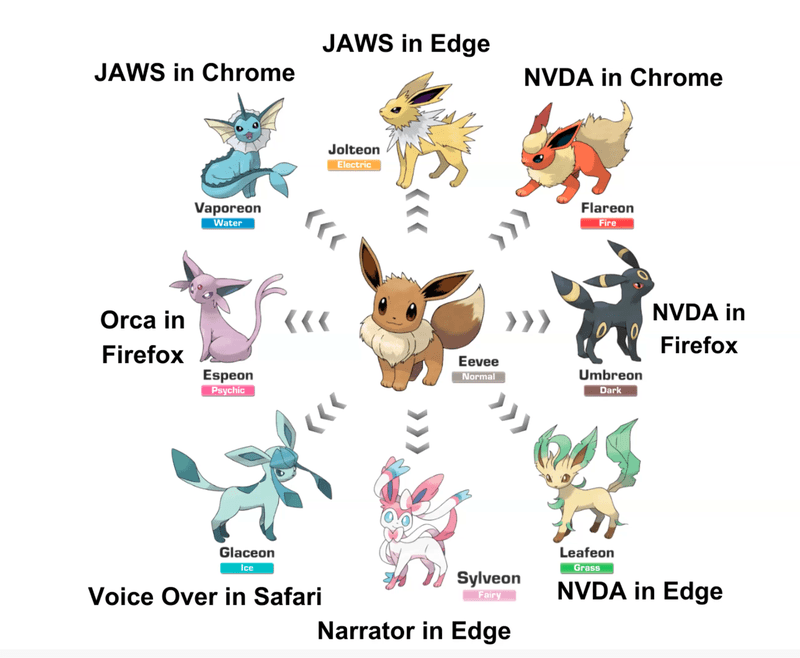
As speakers Laura and Pawel explained, screen readers come with a lot of nuance, and it’s really useful to know better how they work under the hood! Laura Wissiak says more about this on her podcast, Understanding the Tools Blind Users Rely on: From Screen Readers to White Canes.
We finished out the main talks for day with Matt Westcott's talk on the future of search in Wagtail. He shared how key parts of search will be transitioned to a new package that will provide useful search capabilities for both Wagtail and Django projects.
The day wrapped up with more lightning talks and another social with talks on bringing DjangoCon to your city, using pg_search, the future of AI technology, and an experimental package for managing photo perspectives in Wagtail.
Day Three: Community Day brings us together
The third day was Community Day, which had an unconference format and a schedule based on the things that interested everyone who showed up.
We had a session on how to contribute to Wagtail for new contributors and a Wagtail AI roundtable discussion. We covered topics such as:
- How an AI chat feature for our user guide would make it easier for users to find the information they are after.
- The value of such a feature directly inside the Wagtail admin interface of websites. It could combine Wagtail documentation with site-specific aspects to support CMS users.
- Tips and tricks on how to work with AI coding agents via instructions such as AGENTS.md, or support for llms.txt.
Other sessions included discussions on using Wagtail in education, docs in Wagtail and other projects, and a UX ideation session run by the UI team, discussing CMS features that are ripe for improvements such as:
- Conditional fields
- Link choosers
- Block settings
We rounded out the day with a discussion on Wagtail.org testing data and more social time. Then we all went off to enjoy the weekend after a very, very satisfying three days of Wagtail Space.
Thank you to our sponsors
It's important to thank our sponsors one more time for Wagtail Space. First of all, we definitely have to thank our presenting sponsor, Torchbox.
Our corporate sponsors included Cursive, Hactar, Six Feet Up, Lincoln Loop, and Four Digits. We also had two community sponsors: DEFNA (the Django Events Foundation of North America) and the Django Software Foundation.
Until next year ❤️
We hope that everybody had a great time this year and that they're going to go on and take everything they learned and do amazing things with it. We definitely love that our flock is growing that knowledge of Wagtail is spreading all over the world.
We hope that everybody takes all the good vibes they've gotten from Wagtail Space and brings them back again next year at Wagtail Space 2026! We’ll announce our plans on our This Week in Wagtail newsletter.
